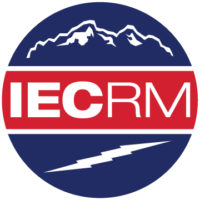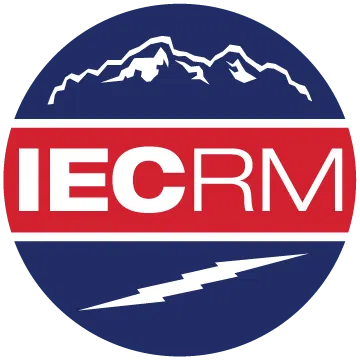Beyond the Curve: Back-to-Business Checklist, Industry Updates, This Week’s Hot Topics and Next Steps

IECRM Member Forum Recap
Wednesday, May 6, 2020
Beyond the Curve: Back-to-Business Checklist, Industry Updates, This Week’s Hot Topics and Next Steps
The first priority during the COVID-19 pandemic has been crisis response and emphasizing health and safety, essential services, and the virtualization of work and education. Today’s IECRM Member Forum explored the issues related to reopening our economy and next steps for electrical contractors to be thinking about.
Three phases have been identified nationally that, as business owners and managers, we face amid the COVID-19 crisis:
- Respond – dealing with the present situation and managing continuity
- Stabilization– learning and emerging stronger
- Recovery – preparing for and shaping the ‘new normal’
Today’s subject matter experts discussed that as progress continues to be made in dealing with the present situation and managing continuity (Recovery), another reality is forming quickly. Now is the time for business to turn its attention toward recovery to ensure these businesses are prepared to thrive. This will require extraordinary focus and coordination, during what may be a protracted period. SMEs joining us today:
- Sam Gluck, VP-Partner, APCO Electric Inc.
- Kristin White, Attorney at Law, Fisher & Phillips
- Sam Cooke, District Marketing Manager, Federated Insurance
- Jay Hicks, IECRMs Lobbyist, Hicks & Associates
Hot Topics
- The big news this week is everyone’s excitement or concerns about re-opening businesses and adjusting to “next”
- Updates to policies for return to work and stay at home
- Business relationships and their importance
- Insurance and the surge in estate planning interest
- Workers compensation
- Risk management and risk mitigation strategies
- Communication and adaptation to a new company culture
Contractor Top of Mind Issues
- Overcoming fear
- Communication with workers about what makes them feel safer about returning to the workplace
- Managing revenue and projects
- Work plans; projects taking longer
- Recalibrating supply chains
- Cleaner job sites; how OSHA is looking a job sites
- Jobsite closures
- Retaining workers; helping them return to work
- Modular adoption and offsite prefabrication methods
- Continuing social distancing
Health, Safety, Risk Mitigation, Company Return to Work Policies
- Fisher Phillips has published comprehensive guidance for business recovery including assessing business operations, bringing employees back to work and ensuring a safe workplace.
- Be sure to comply with all recommendations as if they are requirements.
- The time is now to begin thinking about these next steps as they come with a whole new set of labor and employment challenges.
- Return to work safely and with patience; create employee confidence
-
- Develop and implement a new and appropriate workplace safety policies regarding:
- Social distancing and protective equipment;
- Temperature checks;
- Testing, isolating, and contact tracing;
- Sanitation;
- Use and disinfection of common and high-traffic areas;
- Find new talent among your employees, Identify the right people and skills for doing the right jobs; maybe even doing them differently and with a greater degree of documentation
- Business travel.
- Anticipate legal scenarios that you might face/encounter.
- Make sure your employees all get familiar with these new policies and procedures to develop and maintain safety.
- Employers are encouraged to follow federal, state, and local regulations and guidance in developing these policies, informed as necessary by industry best practices.
- Develop and implement a new and appropriate workplace safety policies regarding:
- Fisher Phillips Return to Work Checklist:
OSHA & CDC new workplace safety protocols
- Do a workplace risk assessment; follow the multi-industry construction guidance published by the CDEPHE; Pinnacol is conducting free safety assessments for companies.
https://drive.google.com/file/d/1pMbMK8-bHLjmithMj51rOg6CmZwEI0nV/view
- What constitutes an employee’s right to refuse to work
https://www.osha.gov/right-to-refuse.html
-
- An employees’ right to refuse to do a task is protected if all of the following conditions are met:
-
-
- Where possible, he/she have asked the employer to eliminate the danger, and the employer failed to do so; and
- He/she refused to work in “good faith.” This means that he/she must genuinely believe that an imminent danger exists; and
- A reasonable person would agree that there is a real danger of death or serious injury; and
- There isn’t enough time, due to the urgency of the hazard, to get it corrected through regular enforcement channels, such as requesting an OSHA inspection.
-
-
- He/she should take the following steps:
- Ask your employer to correct the hazard, or to assign other work;
- Tell your employer that you won’t perform the work unless and until the hazard is corrected; and
- Remain at the worksite until ordered to leave by your employer.
- He/she should take the following steps:
The Payroll Protection Program (PPP): How’s it going? What are we learning?
- Keeping detailed records is essential to whether the PPP is forgiven or must be repaid.
- Due diligence is required.
- At least 75% of the PPP a business receives needs to go toward payroll in order to be compliant with PPP/SBA guidelines.
- The purpose of the PPP is to ensure we are taking care of our employees and their families by ensuring they receive their paychecks.
- Employees are the backbone of our companies.
- Regarding paying bonuses and raises, guidance is still forthcoming
Changing Corporate Culture, Communication, Creating Psychological Safety
- Employees are our most precious resource and the lifeblood of our businesses.
- Focus on what they need to feel safe; are they getting what they need.
- Accommodate the most vulnerable individuals and keep talking with them about what you are doing and how you are accommodating them.
- Assume nothing, over communicate, respond to emails and make sure nothing gets lost in translation or transition; hold each other accountable.
- Communications to support a culture of TRUST. It’s important to ensure a clear message from the top down, here are some thoughts to keep it consistent and authentic:
- Create a communications message and be sure to nuance it to the rest of the organization.
- Start with the senior leadership team and make sure you cascade the message to the entire organization so that the message is consistent across the board and appropriate for all employees.
- Stress your company’s values and mission, especially around safety, health and security at this time as transparently as you can to support a culture of trust.
- Make sure that jobs are clearly defined.
Government Relations and the Colorado legislative session/work with DORA.
The Colorado Legislature is to resume on May 18th for a shortened – no more than 20 days – session. The focus will be on moving bills through that have been deemed ‘essential’ to policy. And efforts are underway now to determine budget cuts to the existing state budget as well as cuts to state budgets for next fiscal year due to loss of state revenue. IECRM continues to work with DORA representatives on issues that are impacting – or may impact the construction sector, specifically electrical contractors and electricians.
NEXT IECRM MEMBER FORUM: Wednesday, May 13 at 7:30am
Next week, our Member Forum topic will include an update and discussion on the overall economic recovery, consumer confidence, and additional Top of Mind topics the coronavirus brings to us as most of the Metro area local ‘stay at home’ orders expire.
